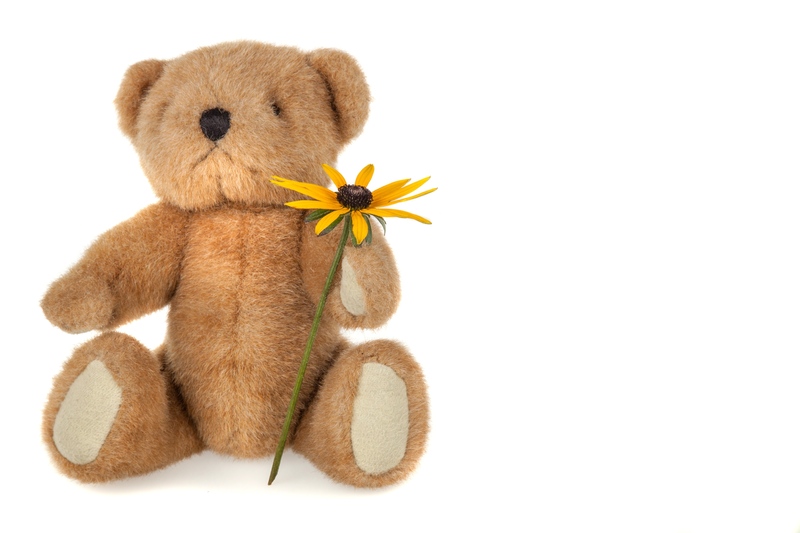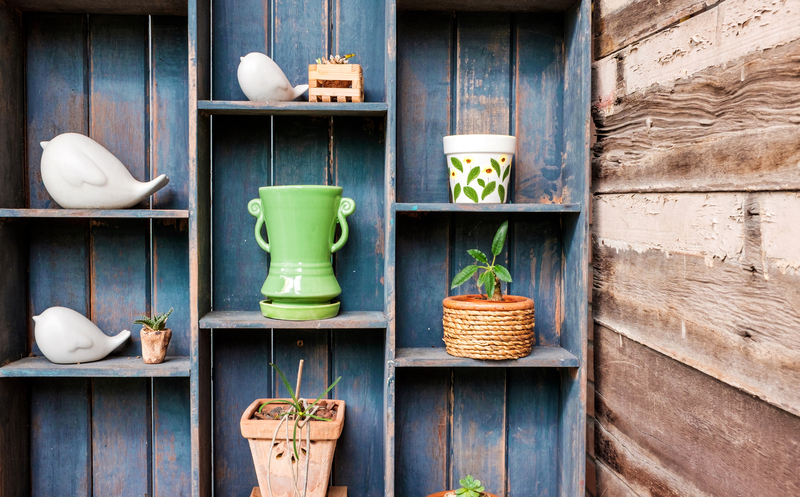Exciting Ways to Foster a Love for Recycling in Kids
Teaching children about recycling is more important now than ever before. With landfills growing and environmental concerns on the rise, it is crucial to instill eco-friendly habits in the younger generation. If you are looking for creative and exciting ways to encourage recycling in kids, this comprehensive guide will provide effective strategies, engaging activities, and helpful tips to make recycling fun, educational, and a positive part of your family's routine. Whether you are a parent, a teacher, or a caregiver, these actionable ideas will help you cultivate a lasting love for recycling in children and establish habits that benefit our planet for years to come.

Why Teaching Kids About Recycling Matters
Recycling reduces waste, conserves natural resources, and lessens pollution--values essential for creating a sustainable world. But why focus on children? Kids are naturally curious and learn rapidly through observation and participation. By introducing recycling practices early on, you empower them to become environmentally conscious citizens who make thoughtful choices.
- Early awareness of recycling creates lifelong eco-friendly habits.
- Children influence their peers and family members towards greener behaviors.
- Recycling provides a hands-on way to teach science, responsibility, and community participation.
1. Use Storytelling to Make Recycling Relatable
Stories captivate children's imagination and make it easier for them to understand complex topics like recycling. Find age-appropriate books, animated videos, or short stories that illustrate the recycling process and its impact.
Recommended Storybooks About Recycling
- "The Adventures of a Plastic Bottle" by Alison Inches
- "Michael Recycle" by Ellie Bethel
- "Why Should I Recycle?" by Jen Green
Reading together and discussing the stories reinforces the message in a natural, enjoyable manner.
2. Turn Recycling Into a Fun Game
Children love games! Gamifying the recycling process transforms it from a chore to a playtime activity.
Recycling Sorting Relay
- Gather clean recyclables--plastic, paper, glass, and metal.
- Set up labeled bins for each material type.
- Challenge children to sort items into the correct bins as quickly as possible.
Recycling Scavenger Hunt
- Create a scavenger hunt with a list of recyclable items commonly found at home or in the classroom.
- Ask kids to find and identify these items.
- Reward participation with stickers or extra playtime.
Games reinforce sorting skills and help kids recognize which materials are recyclable, all while having a blast!
3. Get Crafty With Upcycling Projects
Upcycling is the process of turning waste into new, useful items. Engaging kids in upcycling crafts not only fosters creativity but also demonstrates the value of reusing products instead of discarding them.
Fun Upcycling Crafts for Kids
- Plastic Bottle Planters: Cut cleaned bottles to create planters and decorate them with paint or stickers.
- Cardboard Box Castles: Use old boxes to build imaginative forts or dollhouses.
- Paper Bead Jewelry: Transform scrap paper into colorful necklaces and bracelets.
- Tin Can Organizers: Decorate cans to hold pencils, brushes, or small toys.
*Letting children display their crafts or gift them to friends helps build pride and a personal connection to recycling.*
4. Set Up a Kid-Friendly Recycling Center at Home
Involve your children in setting up a colorful, accessible recycling station at home. This makes recycling routines visible and reinforces daily practice.
- Use clearly-labeled bins with pictures for non-readers or younger kids.
- Place the station in a convenient spot, such as the kitchen or garage, where most waste is produced.
- Assign simple recycling-related duties, like checking bins or rinsing recyclables.
Ownership over the recycling space gives kids a sense of responsibility and pride in their contribution to the family's green efforts.
5. Watch Educational Videos and Documentaries Together
Visual learners benefit from educational shows and documentaries about recycling, pollution, and sustainability. There are many child-friendly resources available online and on streaming services. Watching and discussing these together helps reinforce what they learn in school or through activities.
Recommended Educational Resources
- National Geographic Kids: Recycling Videos
- Sesame Street Recycling Song
- "The Lorax" (animated movie with strong environmental themes)
Pause to talk about the important points and connect what they see to their own lives and your family's recycling habits.
6. Encourage Participation in Community Recycling Initiatives
Community events are exciting for kids and offer real-world context for recycling efforts. Take them along to local recycling drives, park cleanups, or Earth Day festivities. Many cities organize tours of recycling centers--an eye-opening experience for children eager to see what happens to their sorted items.
- Sign up for school or neighborhood cleanups.
- Volunteer at recycling drives or community gardens.
- Organize a recycling event at school or with scout groups.
Participating together in these events builds teamwork, connects children to the wider community, and highlights the collective impact of small actions.
7. Integrate Recycling into Everyday Learning
Recycling doesn't have to be a standalone topic--it can be woven into daily learning and play. Use recycling as a teaching tool across different subjects:
- Math: Count and sort recyclable items by material or size.
- Science: Discuss materials, decomposition times, and the science behind the recycling process.
- Art: Use recycled materials for sculpture, painting, or collages.
- Language: Write stories or letters about why recycling matters.
This approach makes the concept of recycling more familiar, practical, and less likely to be forgotten.
8. Lead by Example and Celebrate Achievements
The most powerful way to instill a love for recycling in kids is to model it yourself. Let your children see you sorting waste, using reusable bags, and making eco-friendly choices. When kids witness adults taking recycling seriously, they're more likely to imitate those behaviors.
- Praise small successes: Celebrate filling up a recycling bin or completing a craft project from reused materials.
- Display charts or stickers to track recycling progress together.
- Make recycling a family affair: Share responsibilities and look for ways to improve as a team.
Positive reinforcement is key--children thrive on encouragement and recognition.
9. Incorporate Technology for Digital Natives
Modern kids are digital experts. Take advantage of educational recycling apps, interactive games, and online quizzes designed specifically for young learners. These tools make learning about recycling engaging and memorable.
Popular Recycling Apps for Kids:
- Gro Recycling: An interactive game teaching sorting and composting
- Recycle Hero: Encourages eco-friendly sorting through fun challenges
- Mission Recycle: Provides facts and environmental tips for young readers
Many of these games offer badges or rewards that motivate continued participation and reinforce key concepts in a playful way.
10. Foster Open Conversations and Answer Questions
Kids are naturally curious and may have a lot of questions about recycling--such as what happens to their milk jug or why certain items can't be recycled. Create an open environment where questions are welcomed and answered honestly. If you don't know the answer, make it a learning experience to research together.
- Encourage kids to express their opinions about recycling.
- Discuss where trash goes with pictures or charts.
- Watch educational materials together to find out more.
When kids understand the "why" behind recycling, they're much more likely to participate enthusiastically.
11. Explore the Impact of Global Recycling Heroes
Introduce your children to individuals and organizations worldwide who are making a significant difference with their recycling efforts. Their inspiring stories can motivate your kids to view recycling as a heroic and rewarding activity.
Examples of Eco-Heroes
- Boyan Slat: Founder of The Ocean Cleanup
- Katie Patrick: Environmental engineer and author
- William Kamkwamba: Malawian innovator who built a windmill from scrap
Role models make recycling feel important and empowering, appealing to kids' sense of adventure and purpose.
12. Connect Recycling to Future Goals
Discuss how recycling today helps protect the planet for future generations. Explain the link between recycling, conserving resources, and preserving nature for animals and people. If your child loves animals or nature, highlight how recycling keeps their habitats safe and clean.
- Plant a tree each year to symbolize your family's commitment to a cleaner environment.
- Visit local parks or zoos and talk about how recycling benefits wildlife.
- Start a garden using composted kitchen scraps to close the loop on food waste.
Making these connections gives recycling a bigger meaning and helps kids understand the value of their contributions.

13. Celebrate Global Recycling Days and Events
Use global observances such as America Recycles Day (November 15th) or World Environment Day (June 5th) as special opportunities to promote recycling in new and festive ways.
- Organize a recycling-themed party with games and recycled crafts.
- Host a neighborhood "swap day" for exchanging toys and books.
- Participate in nationwide recycling challenges or art contests.
The novelty of special events makes sustainability feel fresh and exciting, keeping kids interested throughout the year.
Conclusion: Building a Generation That Loves Recycling
Fostering a love for recycling in kids is all about making it accessible, engaging, and meaningful. By using creative strategies--from storytelling and games to real-world experiences and positive role models--you can teach children to value recycling and environmental stewardship for a lifetime. The journey doesn't end in childhood; these early lessons empower kids to become proactive leaders who care for our world.
- Make recycling visible and fun in everyday life.
- Model eco-friendly behavior and celebrate achievements.
- Connect recycling habits to bigger environmental goals.
Remember: When kids feel empowered and excited about recycling, they can inspire positive change in their families, schools, and communities. Start today to help build a greener and more sustainable future!